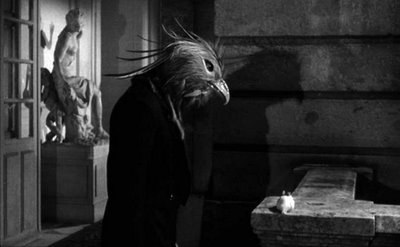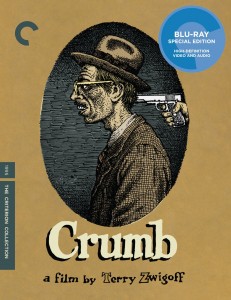From the Chicago Reader (January 1, 1993). — J.R.

There’s a world of difference between the natural, “found” surrealism of Louis Feuillade’s lighthearted French serial (1914) and the darker, studied surrealism and campy piety of this 1964 remake by Georges Franju. Yet in Franju’s hands the material has its own magic (and deadpan humor), which makes this one of the better features of his middle period. Judex (Channing Pollack) is a cloaked hero who abducts a villainous banker to prevent the evil Diana (Francine Bergé in black tights) from stealing a fortune from the banker’s virtuous daughter. Some of what Franju finds here is worthy of Cocteau, and as he discovered when he attempted another pastiche of Feuillade’s work in color, black and white is essential to the poetic ambience. With Jacques Jouanneau and Sylva Koscina. In French with subtitles. 104 min.
 Read more
Read more
Written in 2010 for Criterion’s DVD and Blu-Ray. This is the second of my essays about Terry Zwigoff’s documentary; for the first one, written 15 years earlier, go here. — J.R.

Now that Terry Zwigoff’s Crumb is about fifteen years old, it seems pretty safe to say that it has evolved from being a potential classic to actually becoming one. But what kind? A documentary portrait of a comic-book artist, musician, and nerdy outsider? A personal film essay? A cultural study? An account of family dysfunction and sexual obsession? Or maybe just a meditation on what it means to be an American male artist — specifically, one so traumatized by his adolescence that he has never found a way of fully growing past it.
In fact, Crumb is all these things, with a generous amount of thoughtful art criticism thrown in as well. An old friend of Robert Crumb’s, Terry Zwigoff shot the movie over six years and edited it over three, and the multifaceted density and sometimes disturbing nature of what he has to show and say over two hours seems partly a function of the amount of time he had to mull it over. It’s worth adding that he was in therapy for part of that time, which surely had an impact on the film’s searching thoughtfulness and on Zwigoff’s own investment in the material. Read more



